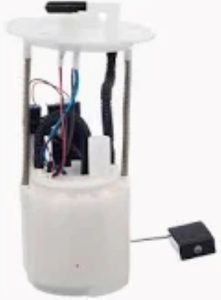Fuel pump failures come from getting contaminants in the fuel, running too hot damaging components inside it or low gas and wear over time. One of the foremost reasons behind a failed fuel pump is due to contaminated gas. Impurities like dirt, rust or debris that are contained in fuel can block the pump and cause it to lose power. It's all thanks to the great confidence contributor known as contaminated fuel, which raises pump-damage risk by about 40%, since debris will scratch internal components of anything while hindering operations everywhere.
Overheating is the other most common reason. Fuel pumps count on the fuel around them for cooling, specifically electrical powered pumps inside a tank. Fuel Pump: If the tank has been running low on gas each time you fill up for a prolonged period of time, this might cause your fuel pump to overheat and shorten it's life span. Auto repair reports on older cars show that up to 1 out of every five fuel pump failures are due, in part at least, by the fact low-fuel driving has caused the vehicle owner not kept their car tank filled so the pump is operating in a less-than-ideal cooling environment.
As the best method of cooling a fuel pump is to run gasoline through it (it augers that fuels are used as "coolants" in drag racers and other racing engines), running out at gas increases wear on your unit. One other important thing, however: Many automotive experts suggest avoiding the low-fuel dance altogether in most circumstances and keeping a decent amount of fuel--generally above one-quarter tank—to ensure that your pump remains lubricated with gasoline. Research has shown that fuel economy can extend the life of a pump by up to 30% because it helps prevent strain and overheating which are common when operating with low fuel levels.

Electrical failures can also add to siphoning your fuel pump. If your In-Tank Fuel Pump even momentarily looses power, whether that is due to poor wiring or a voltage irregularity (more on those problems included in the fuel pump installation section), you will experience inconsistent performance with an externally mounted high-psi pump. A good circulating pump that runs properly is critical. According to automotive electrical experts, as many as 15% of fuel pumps replaced for no-start conditions are due not to pump failure but instead being diagnosed improperly because of an upstream wiring fault that could cause the problem with virtually any electrically operated component if left unresolved.
By choosing a trusted Fuel Pump made from premium parts and keeping it in good working order, you can increase the chance of not having to experience problems. Regularly scheduled maintenance checks of the fuel pump for impurities, proper gasoline supply and electrical connections will extend the life of your fuel system.
